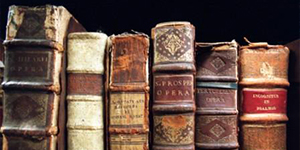
|
Lynne Farrington, Curator, Printed Books, Rare Book and Manuscript Library, University of Pennsylvania, provides the following fascinating description of two volumes recently acquired for the Society’s collection.
|
Two editions, the original French edition (1760) and the first English edition (1762), of a work by Louis-François-Henry de Menon, marquis de Turbilly (1717-1776), were recently added to the library of the Philadelphia Society for Promoting Agriculture, housed in the Kislak Center for Special Collections, Rare Books and Manuscripts at the University of Pennsylvania. Turbilly was an important agricultural reformer, and with his friend Henri Bertin was responsible for setting up a network of agricultural societies in France in the 1760s. He was elected a Fellow of the Royal Society of London in 1762.
Mémoire sur les défrichemens, a treatise on deforestation and agricultural improvement, was an important work in England as well as France. After Turbilly’s death, the English agricultural reformer Arthur Young travelled to Mayenne in Anjou to see for himself Turbilly’s model estate and study his methods. The English edition, which only translates the first part of the work, was entitled Discourse on the Cultivation of Waste and Barren Lands, and states that the translation was done “for the benefit of the farmers of Great Britain and Ireland, where these uncultivated lands too much abound.” It is inscribed to the Honourable Tomas Cholmondeley, Esq., and the dedication is signed by “a farmer in Cheshire.”
This copy of the French edition contains the additional section “Observations sur la sonde & l’ecobuë” (“Observations on the drill and hoe”). In it, he refers to his specially designed farm tools, which because his readers have been unable to find, even in Paris, he has decided to describe more fully. Moreover, the original woodcut illustration of the tools was so badly executed that he here provided a newly engraved illustration which is more precise, also included in this new PSPA copy.
This duo resonates with the holdings of the PSPA Library on many fronts, making it a wonderful addition to the collection.

